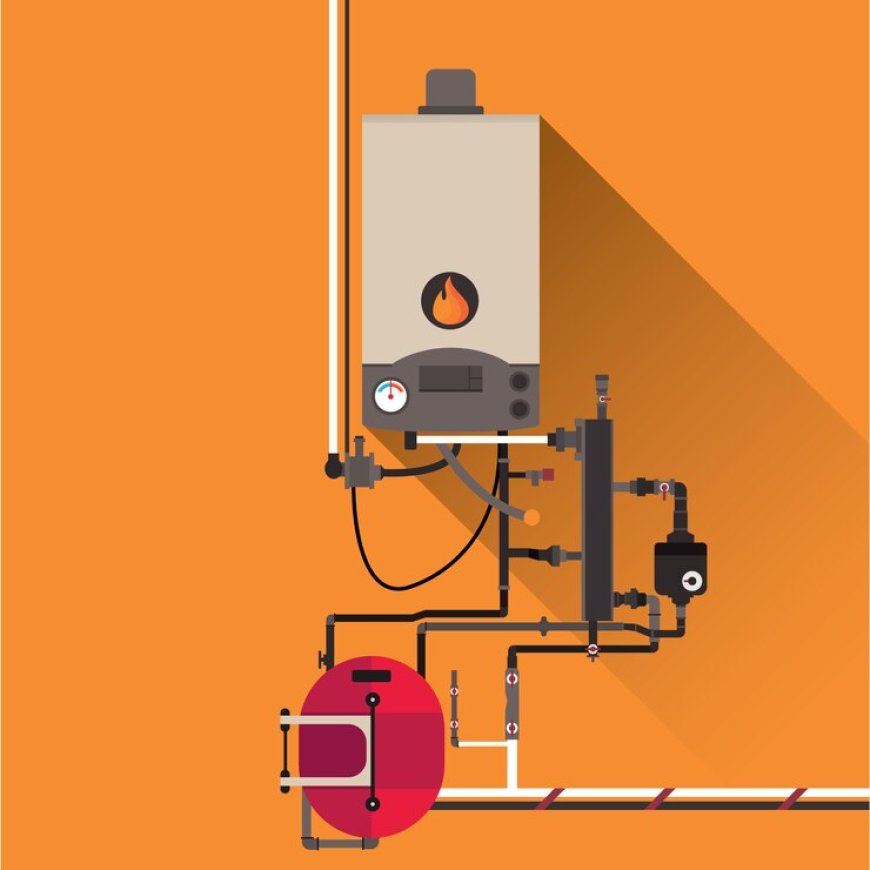Understanding Boiler Efficiency Ratings: A Comprehensive Guide
In this guide, we will explore everything you need to know about Boiler Efficiency Ratings and how they impact your home energy expenses.

In today’s world, where energy efficiency and cost savings are more crucial than ever, understanding the efficiency of your home heating systems can make a significant difference. One such system is the boiler, which plays a vital role in maintaining a warm and comfortable living environment. But how do you determine if your boiler is operating efficiently? That’s where the Boiler Efficiency Rating comes into play. In this guide, we will explore everything you need to know about Boiler Efficiency Ratings and how they impact your home energy expenses.
What Is a Boiler Efficiency Rating?
A Boiler Efficiency Rating is a measure of how effectively a boiler converts fuel into usable heat. Expressed as a percentage, this rating helps homeowners understand the performance of their boiler. For example, a boiler with a 90% efficiency rating converts 90% of the fuel into heat, while the remaining 10% is lost in the form of exhaust gases.
In the UK, boiler efficiency is rated using two main systems:
- The Seasonal Efficiency of Domestic Boilers in the UK (SEDBUK): This system rates boilers on an A to G scale, with A being the most efficient.
- ErP (Energy-related Products) Directive: Introduced by the EU, this system provides a more standardized efficiency label, classifying boilers from A+++ to G.
Why Is Boiler Efficiency Important?
1. Lower Energy Bills
An efficient boiler uses less fuel to produce the same amount of heat, which directly translates to reduced energy costs. By upgrading to a high-efficiency boiler, you can significantly cut your monthly energy bills.
2. Environmental Impact
Efficient boilers produce fewer carbon emissions, making them more environmentally friendly. Reducing your carbon footprint is not only beneficial for the planet but also aligns with government initiatives promoting sustainable energy solutions.
3. Enhanced Comfort
Boilers with higher efficiency ratings provide consistent and reliable heating, ensuring a comfortable indoor environment regardless of the weather outside.
Factors Affecting Boiler Efficiency
Several factors can influence the efficiency of your boiler:
- Age of the Boiler Older boilers tend to have lower efficiency ratings due to outdated technology and wear and tear.
- Type of Boiler – Combi Boilers: Known for their compact size and on-demand hot water supply, they are generally efficient. – System Boilers: Ideal for homes with higher hot water demands, offering good efficiency levels. – Conventional Boilers: Typically less efficient compared to modern alternatives.
- Maintenance Regular servicing ensures that your boiler operates at peak efficiency. Neglecting maintenance can lead to inefficiencies and higher energy costs.
- Insulation Proper insulation of pipes and tanks helps retain heat, reducing energy loss and improving overall efficiency.
How to Check Your Boiler’s Efficiency Rating
To find out your boiler’s efficiency rating:
● Look for the energy label on your boiler or consult the manufacturer’s manual.
● Use online tools like the Boiler Efficiency Database to search for your model’s rating.
● Consult a qualified heating engineer for an assessment.
Benefits of Upgrading to a High-Efficiency Boiler
If your current boiler has a low efficiency rating, consider upgrading to a modern, high-efficiency model. Here’s why:
1. Cost Savings
Though the initial investment may seem high, the long-term savings on energy bills make it worthwhile.
2. Increased Property Value
Homes equipped with energy-efficient systems are more attractive to buyers, potentially increasing your property’s value.
3. Government Incentives
You may be eligible for grants or incentives when upgrading to an energy-efficient boiler, further offsetting costs.
Tips for Improving Boiler Efficiency
If replacing your boiler isn’t an option right now, you can still enhance its efficiency with these tips:
- Regular Servicing Schedule annual maintenance to keep your boiler in top condition.
- Bleed Radiators Remove trapped air from your radiators to improve heat distribution.
- Install a Smart Thermostat Optimize heating schedules and monitor energy usage with a smart thermostat.
- Insulate Pipes Use pipe lagging to minimize heat loss.
- Adjust Settings Set your boiler to an optimal temperature to avoid overworking it.
Common Myths About Boiler Efficiency
1. All New Boilers Are Equally Efficient
Not all new boilers have the same efficiency rating. Always check the energy label before purchasing.
2. Turning Off the Boiler Saves Energy
Frequent on-off cycles can reduce efficiency. Instead, use a programmable thermostat to maintain consistent temperatures.
3. Bigger Boilers Are Better
Oversized boilers consume more energy than necessary. Choose a boiler size that matches your home’s heating needs.
Conclusion
Understanding Boiler Efficiency Ratings is essential for making informed decisions about your home’s heating system. Whether you’re looking to reduce energy bills, minimize environmental impact, or enhance comfort, a high-efficiency boiler is a worthwhile investment. Regular maintenance and adopting energy-saving practices can further optimize your boiler’s performance, ensuring a warm and cost-effective home.
For more tips on improving home energy efficiency, visit Home Energy Guide.
What's Your Reaction?























![SAP C_C4H225_12 Exam Dumps [2024 Questions] For Perfect Study](https://news.bangboxonline.com/uploads/images/202410/image_430x256_6715f882d05ab.jpg)